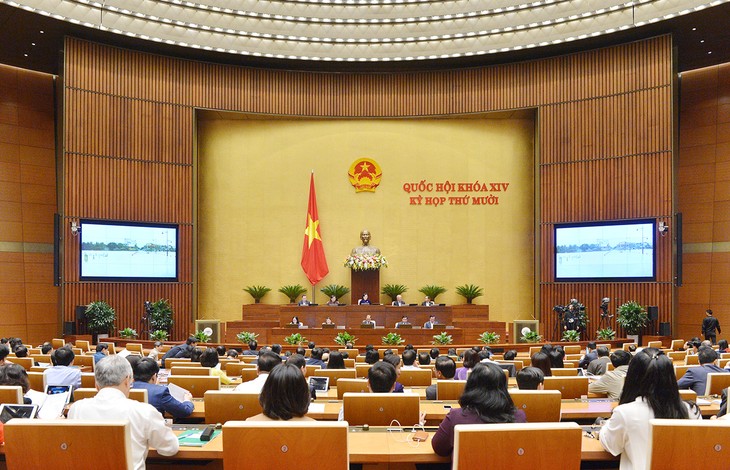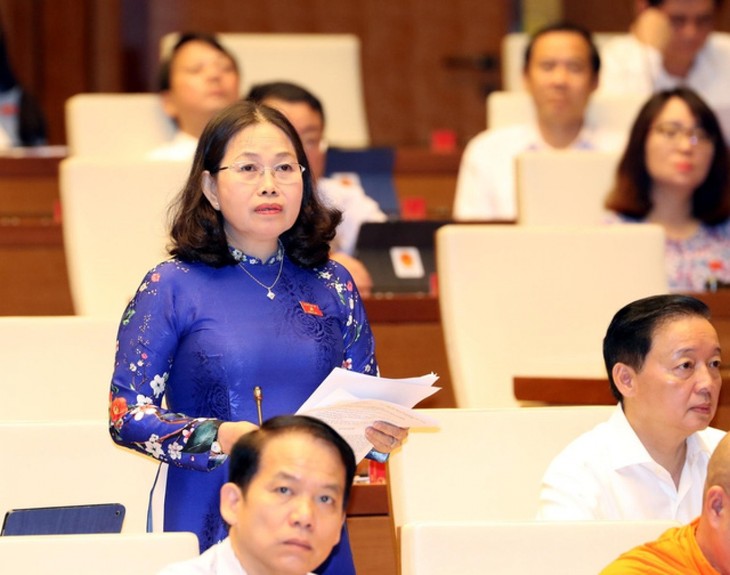National Assembly deputies propose socio-economic development solutions
(VOVWORLD) -Legislators discussed social economic plan implementation, State budget and economic restructuring at the 14th National Assembly’s 10th session on Wednesday.

The National Assembly continues to discuss the socio-economic situation on November 4. (Photo: quochoi.vn)
|
The lawmakers also debated issues regarding public investment, national finance and national target programmes. Legislators held that 2020 is a challenging year with the outbreak of COVID-19 and devastating impacts caused by drought and saltwater intrusion in the Mekong Delta and storms and floods in central Vietnam. Despite such difficulties, Vietnam is among few countries around the world registering positive economic growth this year. They praised the government’s efforts to fulfill the dual goals of fighting the COVID-19 pandemic and boosting socio-economic development, resulting in the stable macroeconomic situation, low-level inflation, and improved growth quality.
 Deputy Nguyen Thi Yen of Ba Ria-Vung Tau delegation (Photo: VNA) Deputy Nguyen Thi Yen of Ba Ria-Vung Tau delegation (Photo: VNA)
|
Deputy Nguyen Thi Yen from Ba Ria-Vung Tau province suggested solutions on social economic development. She said, "The National Assembly and the government should have specific scenario and measures to minimize losses caused by the COVID-19 pandemic in the new normality. Regarding the consequences of floods in the central region, we should add budget and analyze causes to initiate long-term sustainable residential zoning, resources and facilities in natural disaster preparedness against floods, storms and landslides.”
The deputies later commented on the disbursement of public investment and new rural area building as well as poverty reduction. Deputy Tran Thi Hien from Ha Nam province said,“To ensure efficient capital investment, the government should closely match investment and budgeting with sectoral, regional and local economic situations to prevent waste for efficient and sustainable outcomes.”